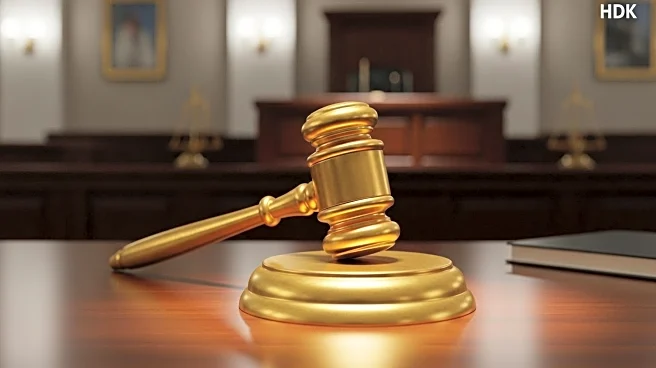What's Happening?
A federal judge has ruled that Sigal Chattah is ineligible to serve as Acting U.S. Attorney in Nevada, disqualifying her from prosecuting three felony cases. Chattah was initially appointed as Interim U.S. Attorney by Attorney General Pam Bondi for a 120-day term, which expired in July. Bondi then appointed her as Acting U.S. Attorney, a position that could have extended indefinitely. However, the Federal Vacancies Reform Act of 1998 stipulates that the administration can fill a vacancy by appointing the first assistant as acting U.S. Attorney, a position Chattah never held. The ruling follows motions filed by Nevada’s Federal Public Defender to dismiss indictments brought by Chattah after her term expired, arguing that her appointment bypassed Senate confirmation and violated the Vacancies Reform Act.
Why It's Important?
The ruling underscores the importance of adhering to the Federal Vacancies Reform Act, which aims to prevent the executive branch from circumventing Senate confirmation processes. This decision could impact the prosecution of critical criminal cases in Nevada, as Chattah's disqualification may delay proceedings. The case highlights ongoing tensions between the Trump administration and legal norms, with critics arguing that Chattah's appointment was politically motivated and unfit for the role. The decision also reflects broader concerns about the impartiality and integrity of legal appointments, particularly in politically charged environments.
What's Next?
Following the judge's ruling, Nevada's federal judges have the opportunity to appoint a replacement for Chattah, although they have not yet done so. The Trump administration may seek to appeal the decision, as seen in similar cases involving other U.S. Attorney appointments. Meanwhile, Chattah has requested the Department of Justice to investigate the 2020 election, aiming to exonerate Republicans charged with posing as fake electors. This ongoing legal battle may further complicate the political landscape in Nevada, affecting future appointments and prosecutions.
Beyond the Headlines
The disqualification of Chattah raises ethical questions about the impartiality of legal appointments and the influence of political affiliations on judicial processes. Her previous controversial statements and actions, including her role in challenging the 2020 election results, have drawn criticism and highlight the intersection of politics and law. The case may prompt discussions on the need for reforms to ensure transparency and fairness in the appointment of legal officials, particularly in politically sensitive cases.









